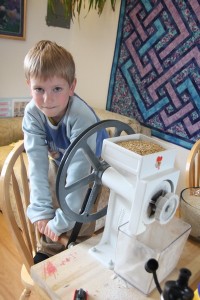I’m not sure how much I’ve written about it here, but one of my serious quests over the last few years is about naming (and to a certain extent accepting) my limits.
There is a fine balance between what we can do, what we should do, and what we want or need to do.
Last month– the month of November– I didn’t write much.
That is, I didn’t process much via journal or blog writing.
I did write my 50,000 words of Sherlockian Daze, and fell in love with a whole new cast of characters.
I also had my limits tested, and my will challenged.
The day after Jay left for his month in Antarctica, I was already past the half-way mark on my 50,000-word goal.
I should say a few things here:
- At some point this summer Jay made the connection that when I said “our work is not equal” I wasn’t talking about value. I was talking about him getting to spend hours and hours of his life (almost daily) on something he enjoys and is good at.
- He made the connection that the crowd-control, housework, homeschooling and the myriad of details that fill my life (while he is doing work he loves) is nothing close to “enjoyable” for me, and with a couple notable exceptions, something I’m only marginally “good at.”
- I’m speaking here of the list above: people are not on that list. Just the grunt-work of making life liveable for a group of people.
- Jay’s trip was up in the air because of the gov’t freeze, so I found out about 10 days before he left about his departure date. [Cue Amy’s standard non-freak-out that involves a lot of focused breathing, book-buying, and vitamin-checking.]
- In a spurt of insightful generosity, Jay pulled his details together in time to stay home and manage the house and kids on November 1, so I could write all day. November 1 I wrote 10,352 words.
- The 10,000-word day is sort of my generic “professional writer” benchmark, mainly due to this book. (Which I recommend: along with quality content it only takes an hour or two to read– which is also why I recommend it.) So crossing the 10K mark on the first was a big-huge deal to me.
- She writes “full time” with her kiddo in daycare, which is sort of how I define full-time: someone else watching your kids so you can focus on something else.
- The 10,000-word day is sort of my generic “professional writer” benchmark, mainly due to this book. (Which I recommend: along with quality content it only takes an hour or two to read– which is also why I recommend it.) So crossing the 10K mark on the first was a big-huge deal to me.
- I tracked my words per hour in a spreadsheet, so I saw that my 10K day was built in hours of 1,000- 1,200 word hours. So when Jay left and my life became exponentially more complex, I maintained my sense of professionalism and good will by producing at the same rate, but in smaller chunks. Chunks more like half an hour to an hour than whole days of application.
On that day after Jay left, I still had a mathematically doable goal of finishing the entire first draft (not just the 50,000 words) by the end of the month. I was half an hour (and a respectable 556 words) into my 2-hour writing block when a got a phone call from a young mom who asked if I could keep her baby “for about a week.”
I used to be a foster parent (of elementary-age kids, before I had two babies of my own) so I knew a few questions to ask, and a week seemed overly optimistic for resolution, but I said I’d talk to Jay.
Jay way still somewhere between Fairbanks and New Zealand, completely unavailable.
Normally my gap MO in such cases is to talk to my mom or dad, but they had left town that morning, and were also unavailable. So I called my IRL Christian/writer/mama friend (do you know how hard it is to get all five of those elements in one person?!) Afiya to have *somebody* who knew my situation to help think things out.
I don’t usually call (phones are not my friend), so she started by asking what was up.
This is why I needed my own pet in the midst of a busy life.
“Do you remember the last time I called when Jay was traveling? I was asking your opinion about adopting a little dog without his go-ahead, because I wasn’t sure it would still be around by the time he got home.”
“Oh sure,” she said. “Did you ever find a dog you both like?”
“No, we ended up getting two cats instead, but that’s not why I’m calling. Today I’m calling about a baby.”
“Oh, Amy, Amy, Amy…”
It was Afiya who pointed out I should ask the kids, enlist their participation because there was no way I could add a baby to my life as it is.
So I spoke with them (“Are you in? Because I’m not doing this by myself: God didn’t design a baby to be raised by one person all alone.”), they jumped at the idea, and that night I was doing baby laundry, watching babywearing videos on YouTube, and introducing my kids to the Dunstan Baby Language DVDs.
Over the last month my kids have impressed me again and again with their attentiveness and problem-solving skills as we’ve integrated this baby into our family.
It is unknown how long he will be with us, and I am thrilled to be writing this the morning after his second night of a big sleep-through (8p.m. to 6a.m.). Writing has emerged once again as a necessity, not a luxury, so with his stay stretching out I’m learning how to reintegrate writing even when we don’t particularly have a schedule. Since I don’t do schedules. Because they require too much energy in ratio to the benefits they proport to offer.
And, no, we don’t plan to adopt him, we’re just giving him a safe place to live while his forever-home stabilizes. Please don’t ask how we’re going to deal with “being attached” or the kids’ “being attached” or what we think we’ll do when he goes.
Odds are we’ll be sad. Odds are we’ll have a very real mixture of grief and relief, but fact is, there’s no way to “prepare” emotionally for a loss other than an unhealthy disengagement, which would damage baby as well as us.
I like how C.S. Lewis wrote about it:
To love at all is to be vulnerable. Love anything and your heart will be wrung and possibly broken. If you want to make sure of keeping it intact you must give it to no one, not even an animal. Wrap it carefully round with hobbies and little luxuries; avoid all entanglements. Lock it up safe in the casket or coffin of your selfishness. But in that casket, safe, dark, motionless, airless, it will change. It will not be broken; it will become unbreakable, impenetrable, irredeemable. To love is to be vulnerable.
When I was 17, I considered a 6-month after-graduation job in another country. I actively considered what it would mean to fall in love with people and a community that I didn’t expect I’d visit again (non-traveler that I am). I quickly reached the “wrap [your heart] up tight” conclusion when I heard two words, almost as if from the voice of God.
Love lavishly.
It was my job, I felt him saying about me, to pour out the love I’d been given, the love I was full of. It was his job to keep my heart whole enough to keep loving.
I’ve learned a lot about love since I was 17, and I have learned more about actively protecting my heart, and defending myself in a useful way, but none of those things is really about limiting love. They’re about choosing how I’ll live, and accepting that people won’t always understand my love, or the way I express it.
One of my lessons is that the outward expression of my love (be that gifts, or listening or service, etc.) isn’t just about what I can do. That is too great a burden. It is about what I can keep on doing.
A one-time gift, or a series of large gifts, adequately spread out to allow me to recharge, is not showing greater love than the small bits that happen every day.
By making choices based on a pattern of sustainable giving, I am allowed consistency (one of my high values) and I am spared the choice or angst of having to decide with each “opportunity” to be stretched, can I endure *this* right now?
It is tied to my recent study of self esteem. My favorite summary of good self esteem has two parts.
- The ability to trust your own mind.
- The assurance you are worthy (or capable) of happiness.
By practicing these two halves, I am more-able to set meaningful limits in the relationships I have, and build a sustainable life that isn’t about running from crisis to crisis (mine or anyone else’s), putting out fires.
I used to think that if I was living life right, I could “work ahead” enough to coast for a while. I could push, then rest, push than rest. I wanted that rest so badly I pushed really really hard. But there’s always more to do, and there is a point we need to take the rest.
More than just taking the rest, which I believe *is* critical, I think some of us also need to work the rest into our daily living.
There will always be people “worse off” than me, and for a long time, I was not able to feel peace in my plenty because of that. But there will also be people better off than me, some because of their hard work and some because of good luck.
I can only live the life I have, and I have proven over and over again that I have plenty to think about without adding to the complexity of my world.
Life is complicated. Love hurts. Limits mean we don’t have to deal with all of everything at once.
Limits are a gift.










